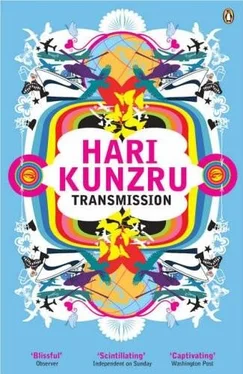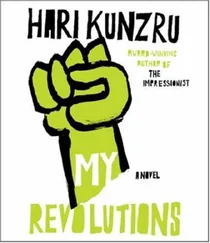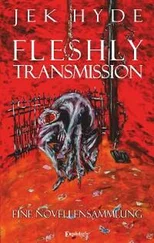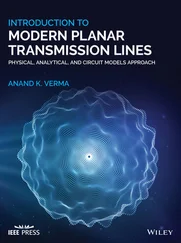Access to Room 206 is swift and brutal. The door gives way immediately under the impact of a 35-pound close-quarter battle ram. Agents shout a warning to the occupant, who does not respond. Shots are fired. The occupant goes down. An ambulance is called and arrives quickly, but the victim is pronounced dead at the scene. Later the corpse is transferred to a morgue in San Diego. Unfortunately for the arresting team, when examined it turns out to be not Arjun Mehta, suspected terrorist and subject of a federal warrant, but an unidentified South-East Asian teenager. The dead boy is found to be carrying a cheap.22 handgun.
Within minutes local news media is on the scene. The officer who fired is taken back to the field office for debriefing and psychological assessment, while the Riverside Motel is cordoned off and a series of photographs of the room are taken, photographs which will rapidly leak out on to the internet and spawn detailed speculation about (among other things) the brands of packaging in the waste-paper basket, the crumpled Oakland Raiders shirt in the bathroom. Some information trickles out to the media. The boy’s name was Kim Sun Hong, a high-school student from San Diego. The gun was of a type sold for $7.98 in certain out-of-state gun stores. What he was doing in Arjun Mehta’s room remains, for the moment, a mystery.
Though dramatic, the disappearances of Guy Swift, Arjun Mehta and Leela Zahir are not unique. They form part of a much larger pattern of virus-related disturbance: on Greyday there was heavy traffic across the border between known and unknown. The easiest story to resolve, or at least tell, is Guy Swift’s, for the simple reason that he came back. His foray into the zone lasted just under a month, during which time an intensive (if under-resourced) search was conducted across the UK and northern Europe. Police followed up sightings in Bremen, Malmö, Le Havre, Portsmouth. The media circulated the theory of underworld involvement, and at one point police announced that they believed the ‘runaway UK business-man’ had orchestrated his own disappearance to avoid financial problems.
After his return to the UK, Swift went to ground. The initial wave of media attention focused on the possibility of legal action. Everyone confidently expected a damages claim, a claim he surely would have won given the extraordinary treatment he had received, but it quickly became apparent that all he really wanted was to slip out of sight. The supposedly flamboyant marketeer turned out to be a poor interviewee. His few press statements were unrevealing, almost monosyllabic. After a while, the media lost interest.
Today anyone wanting to speak to the ‘London highflyer’ discovered ‘washed up on holiday beach’ has to find him first. Following Tomorrow*’s collapse, its Shoreditch offices were sold and the old sweatshop now houses a direct-mail company. Its former CEO is no longer resident at his old riverside address and does not appear on the electoral register elsewhere in London. Research confirms that a Battersea estate agency handled the sale of the In Vitro apartment on behalf of Tomorrow*’s creditors, but they will say only that the new owner is a US-based financial institution which uses the place as accommodation for senior staff visiting London. Swift’s former CFO and creative director, both now working at the Geist Agency, claim to have had no contact with him since his ill-fated Brussels trip. Interestingly both hint that it was Swift’s changed personality and lack of interest in Tomorrow *, rather than its ongoing liquidity problems, which ultimately caused its demise. Speaking on the phone from LA, where she is working as a lifestyle manager, his former assistant Kika Willis puts it simply: ‘He wasn’t Guy any more. It turned him into a freak.’
Determined digging will finally lead up a long rutted farm track which runs off a winding b-road in the North Pennines. At its end, sheltering under a lowering granite escarpment, is a single-storey stone cottage with deep-set windows and a slate roof, a squat little structure designed to withstand battering by the Northumbrian wind and rain. The bleak landscape around it has changed very little in hundreds of years. Sheep graze moorlands marked by dry-stone boundary walls. Down in the valley a river cuts a channel through rich pasturage that is waterlogged in spring and frozen hard in winter. The nearest village is five miles away. From a distance the house appears disused. Rusting agricultural equipment sits outside, and on a rainy day the only hint of colour is the red paintwork of the elderly Ford Fiesta parked by the door. The plume of smoke rising up from the chimney comes as a shock, a sign of human presence where none was expected.
The man who opens the door does not look much like the press photos which circulated at the time of his disappearance. He wears a full beard, which hides much of his face and gives him a severe and patriarchal look. He is dressed in shapeless cord trousers and a thick cableknit sweater with a hole in the sleeve. It would be hard to imagine someone who looks less like a London media-agency boss.
As Guy leans over an elderly gas stove to boil water for tea, the visitor seated at the kitchen table can surreptitiously look at his or her surroundings. The oak table is scarred and pitted by years of use. A set of windchimes hangs by the window, and on the sill by the sink there is a row of odd misshapen pots holding garden herbs. The impression is of neatness, domesticity. As he brings the tea, served in big blue and white enamel mugs, you might notice his hands. They are calloused, the nails cracked and dirty.
Guy likes to talk about the earth. It is, he claims, the source of life. ‘Before,’ he recalls, ‘Ig lived under a great deal of geopathic stress.’ He subscribes to the theory that London (and to a lesser extent other cities) causes an immense distortion of the earth’s natural energy field, a distortion which inflicts physical and psychological suffering on the people forced to live inside it. ‘It took,’ he says, shaking his head, ‘a total life change to get me well again.’ Moving to this remote spot was the only solution. ‘Otherwise things would have run away from me completely.’
The earth is also behind Guy’s post life-change career choice. The pots on the windowsill are his. One room of the cottage has been converted into a workshop, complete with a wheel and a small electric kiln. At the drop of a hat he will demonstrate his throwing technique, or offer to share the secrets of a favourite blue glaze. Despite his enthusiasm, he is not the most talented potter, but, though they may be lumpy and erratic, his pieces have a certain charm. They are sincere pots. The new Guy Swift is a sincere man.
Ragdale Scar, the escarpment behind the cottage, plays an iconic role in Guy’s life. It is the source, he says, of his healing power. Somehow it seems best to skirt the question of his having a healing power in the first place. He has had little success in selling his ceramics, and, though he put up a notice in a nearby village pub, no one has yet come to him to be geopathically realigned, despite the conditional refund offer. Recently he has started to supplement his dole money by helping a crew of local men repair field walls.
His most treasured possession is a small bottle of sand. It comes from the beach in Puglia where he was found by cara-binieri in what the British Consul in Naples drily terms ‘a state of distress’, having been dumped from a dinghy into the sea some distance from shore by a crew of Albanian people-smugglers. The story he told the police was barely credible, and when it was confirmed caused ripples throughout the European Union, not least in the offices of the nascent Pan European Border Authority, which was later held directly accountable.
Читать дальше











